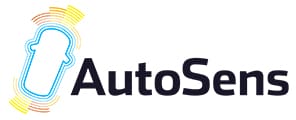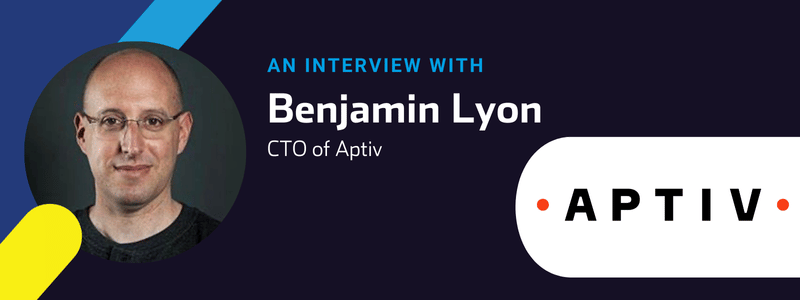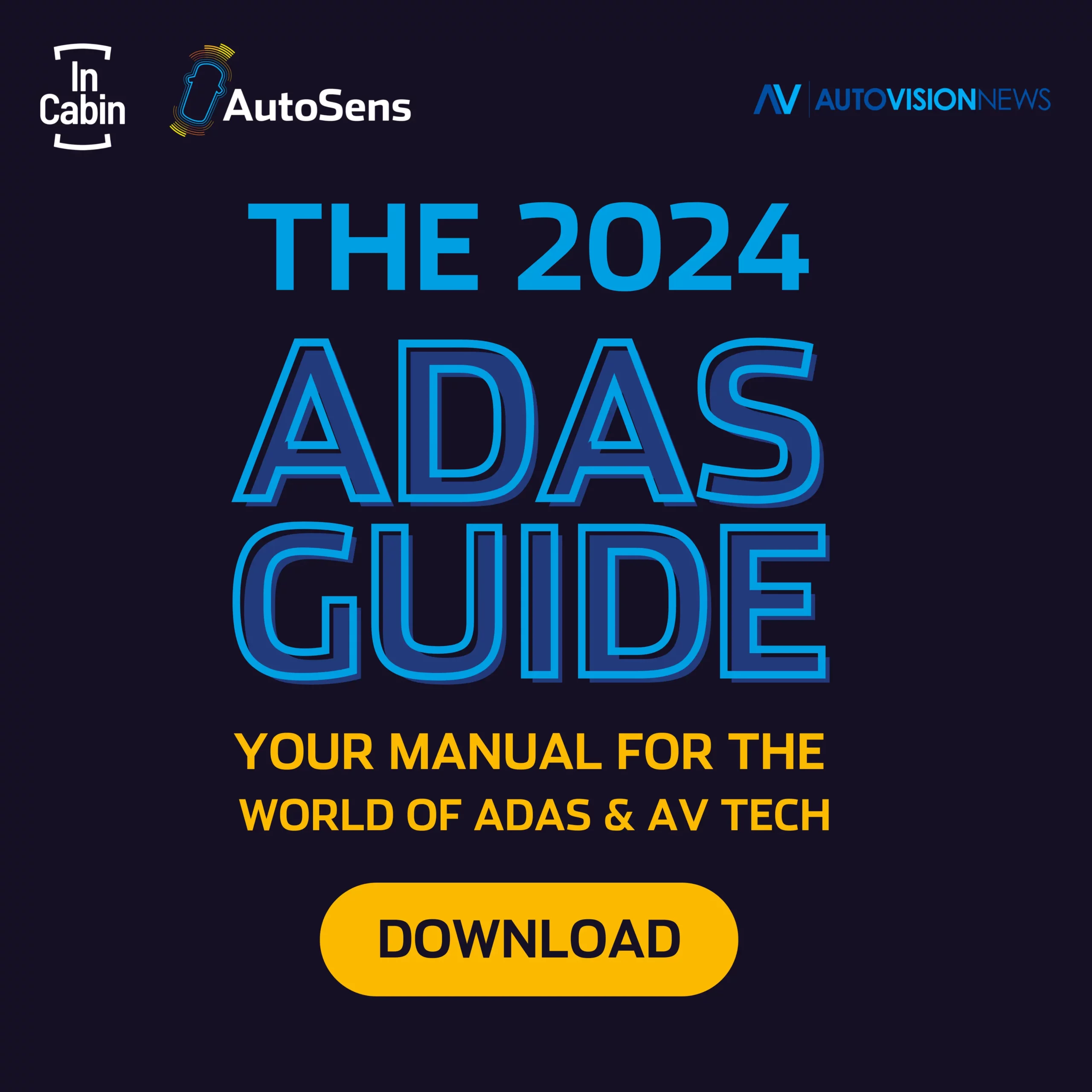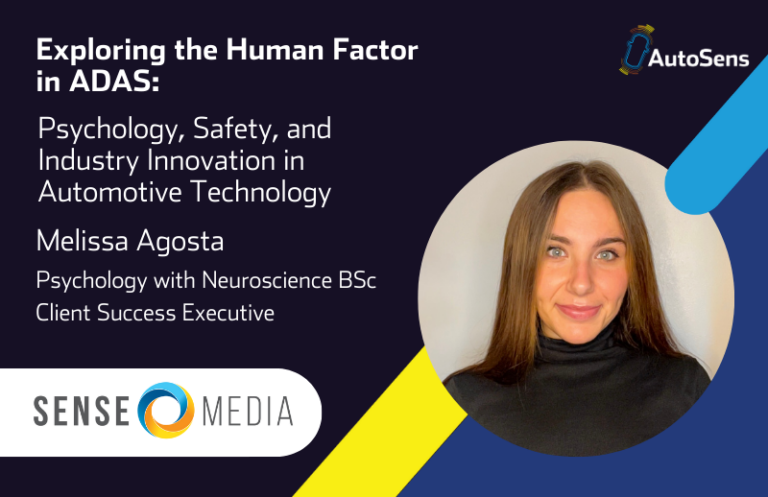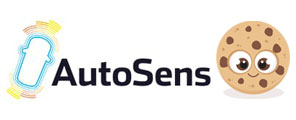Today, we catch up with Benjamin Lyon, CTO of Aptiv, ahead of his presentation at AutoSens Europe on ‘Automotive Software: Accelerating Innovation with Lessons Learned from Consumer Products and Enterprise’. With a passion for impactful innovation, Benjamin will share insights on integrating AI and machine learning in safety-critical environments, the rise of software-defined vehicles, and the importance of collaboration in advancing automotive technology.
After leading innovative technology initiatives for more than 20 years at Apple, what inspired your pivot from consumer products to mission-critical industries with companies like Astra and now Aptiv?
I’ve always been driven by a desire to create things that make a positive impact on people’s lives. My career has given me the opportunity to explore that passion every day. I’ve worked with incredible teams around the world to bring some of the most innovative consumer products to market, and I’ve spent over a decade diving into the world of autonomous technologies and robotics.
One thing I’ve noticed across different industries is that digital transformation is a universal challenge. Many companies are struggling to find the right tools and solutions to reduce costs, improve performance, and master software development. That’s where Aptiv comes in.
For decades, Aptiv has been building cutting-edge technologies that have to work flawlessly, no matter the circumstances. Our solutions are used in everything from rockets to hospitals, and in this new era of AI/ML and 5G, our customers in automotive and other connected industries will rely on us more than ever. We’re honored to be their trusted partner, helping them navigate the complexities of digital transformation and achieve their goals.
How do zero-failure environments across industries like automotive and aerospace safely harness the power and potential of artificial intelligence and machine learning, particularly in the context of mission-critical systems like ADAS?
Safety is our top priority at Aptiv, especially when it comes to AI and machine learning in critical systems like ADAS. We’ve learned a lot from the aerospace industry, where safety is always front and center.
One key area of focus is the use of containerized, mission-critical software. Our industry-leading ADAS platform and cloud-native lifecycle management platform, Wind River Studio, use containerization to isolate and manage software components more effectively, reducing the risk of errors and improving overall system reliability.
Aptiv’s advanced radars play a crucial role in enhancing the safety and performance of our ADAS systems. Harnessing the power of AI/ML allows these radars to see objects better, track them more accurately, and even tell the difference between a bicycle and a motorcycle. This is huge for safety, as it helps our vehicles make better decisions on the road.
At Aptiv, we know that sensing inside the cabin is just as critical to providing a safe, naturalistic automated driving experience. This is why we continue to invest in multi-modal ML based perception that takes the best of cameras, radars, and scalable maps, and other inputs to achieve an optimum result. We also know that ML is not just for perception, which is why we continue to drive the state of the art using ML across many ADAS functions.
Wind River Studio also plays a vital role in developing and deploying AI/ML-enabled solutions. This platform helps us accelerate development cycles, improve collaboration, enhance security, and ensure scalability. It’s like a powerful toolbox that helps us build things faster, work together more efficiently, and keep everything secure.
Additionally, we’ve adopted a rigorous testing and validation regime that includes AI-powered testing and code completion within our DevSecOps toolchain. This helps us identify and address potential issues early in the development process.
By leveraging AI for predictive maintenance and analytics, we can also proactively identify and address potential problems before they occur, reducing downtime and improving system reliability. This approach is inspired by practices commonly used in the aerospace industry.
Ultimately, the safety of AI-enabled systems in the automotive industry depends on a combination of factors, including rigorous testing, continuous validation, and a strong safety culture. At Aptiv, we’re committed to fostering a culture where safety is paramount, and we’re constantly exploring new ways to improve the safety and reliability of our mission-critical systems.
With the rise of software-defined vehicles, what are some of the monetization models you believe will have the greatest impact on the industry? What can we learn from other industries here?
The shift to software-defined vehicles opens up a world of possibilities for automotive manufacturers when it comes to monetization. One avenue that’s really taking off is subscription-based services. Imagine offering features like advanced driver assistance systems or premium audio packages as subscriptions—it could be like Netflix for your car!
Other avenues automakers can explore include anonymized data and analytics that can help companies develop new products and services or deliver targeted advertising, or over-the-air updates that can offer a constant stream of new premium features, product enhancements, or subscription models.
Looking at other industries, we can see the success of subscription-based models and data monetization. Netflix and Spotify have shown us how powerful these models can be, and tech giants like Google and Facebook have demonstrated the value of leveraging user data.
Ultimately, the key to successful monetization in the automotive industry is to offer features and services that genuinely enhance the driving experience and improve safety. By aligning our monetization strategies with the needs and preferences of our customers, automakers can create a sustainable revenue stream and build a thriving business.
Why are forums like AutoSens and InCabin important for the automotive Industry? What do you hope delegates will take away from your session?
I see forums like AutoSens and InCabin as giant brainstorming sessions for the automotive industry. They bring together people from all corners of the world to share ideas, learn from each other, and push the industry forward. It’s a great way to spark collaboration and accelerate innovation.
I hope that attendees leave these events feeling inspired and energized. We’re all in this together, facing similar challenges and opportunities. By sharing our knowledge and working together, we can achieve amazing things.
For me, it’s about recognizing that we’re stronger together. By understanding the shared needs and challenges of the software-defined future, and exploring new avenues for monetization and innovation, we can inspire the industry to embrace collaboration, open platforms, and the sharing of best practices. It’s an exciting time for automotive technology, and I’m thrilled to be a part of it.
